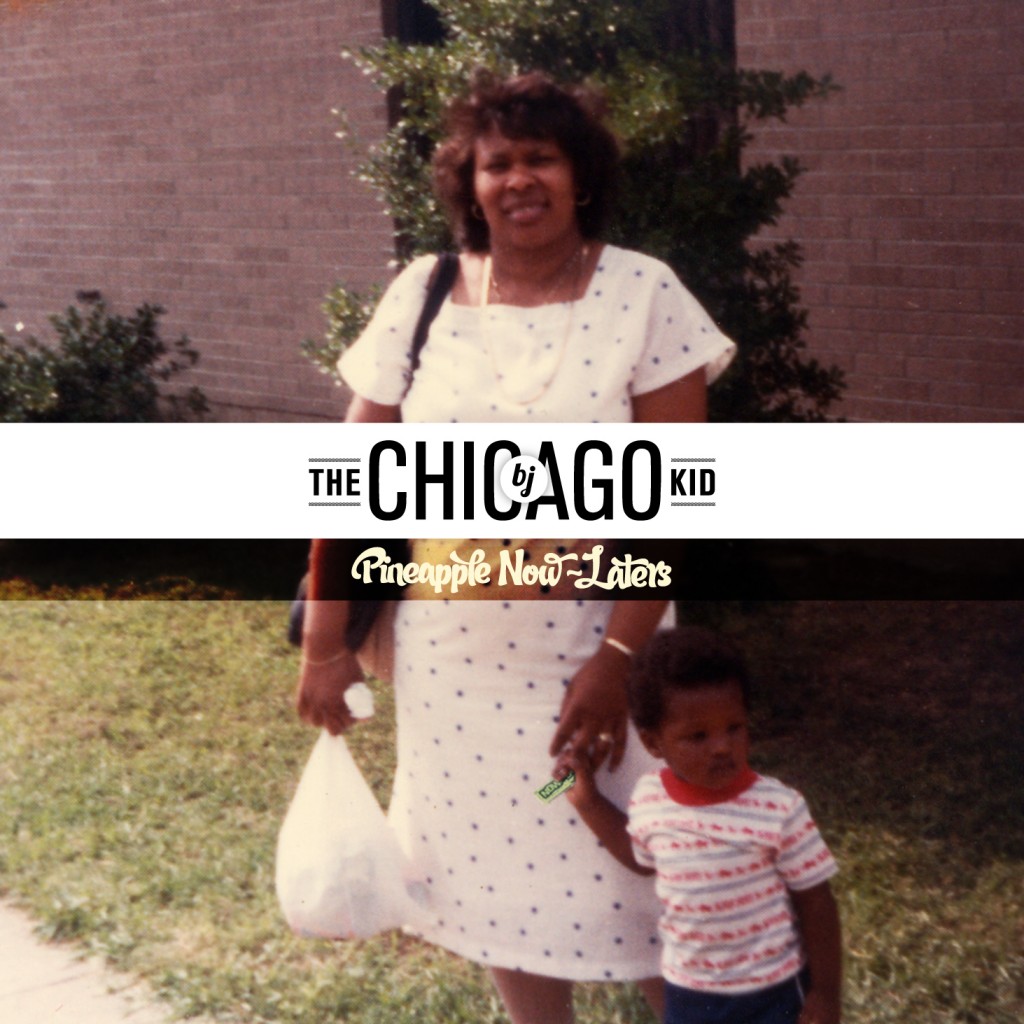MP3: BJ the Chicago Kid – “His Pain II” (feat. Kendrick Lamar)
MP3: BJ the Chicago Kid – “Good Luv’n”
Amidst a barrage of suave, assured, confectionary-based dedications and promises found on the intro to Bryan Sledge’s debut LP, one is particularly striking: “I know you listen to music, this gon’ change how you hear it / After Pineapple Now-Laters, your taste buds change.” But Sledge—or BJ the Chicago Kid (as he’d no longer like to be known after this release)—is not trying to sell his listener the quick, sweet R&B fix that a title like Pineapple Now-Laters would suggest. As far he’s concerned and has recently stated in an interview with BET, his “contemporary” R&B artists have long strayed from true R&B and into the realms of pop, soul R&B is dead, and the burden to resurrect it belongs to him.
What results is an hour-long tour filled with sex, Chicago soul, spoken samples, and sprinkles of socially conscious granola. At eighteen tracks, it’s an expansive album; surprisingly so only if one doesn’t consider BJ’s accomplishments as a songwriter in the industry—he’s written for Mary J. Blige, Musiq Soulchild (his closest contemporary, sound-wise), and Jamie Foxx, to name a few. He’s also from a rather musical upbringing and geography: his uncle played with Smokey Robinson, his mom was a choir director, and he prides himself on growing up breathing the same South Side that Curtis Mayfield once breathed.
The convergence of all of those influences and experiences on Pineapple Now-Laters makes for a clear approximation of his ideal musical world. A pure rendition of the a capella “East Side High” near the opening of the album nods to John Avildsen’s 1989 film Lean On Me, where the song’s presence resembles the power of music in a struggling inner-city school. The mellowed guitars on “Fly Girl Get’em” and “Sex Is The Best Breakfast” sound tastefully plucked off of a Mayfield or Willie Hutch blaxploitation soundtrack. More conventional hip-hop drum patterns and more commercial lyrics on “Dream II” and “Sex X Money X Sneakers” anchor (or better, weigh down) his experimentation elsewhere.
So yes, Pineapple Now-Laters is a mostly rich listening experience. And there are several moments of pure bliss. “His Pain II” features an audibly broken Kendrick Lamar regretting and questioning his own luck in light of all of the unquantifiable suffering around him; this, over a beautifully sparse jazz instrumental, where a bass line and piano weave the listener in and out of past and present hurt. “I Want You Back / Lady Lady” sees a few stunning transitions: from a simple, sincere piano bit to the stomp-clap plea of a jealous lover past, to a sample of an old man verbally reminiscing on a past love of his, to a disarmingly blunt, hugely soulful plea to sensuality: “(Lady, lady) Can I touch ya? / Or shit, can I cut ya? / I’ve got a box of band-aids in my Escalade / I ain’t playin’, come on!” Also, a notable collage-like cover of WAR’s “The World Is A Ghetto,” with added samples and pre-existing commentary, is like BJ’s funky social thesis.
But for so many superior moments, there’s also a considerable number of missteps. The plodding and mundane “King Kong” (which revolves around the decidedly corny line “When you hear me kill every song / Just say ‘There go King Kong’”) kills the feeling of post-“His Pain II” enlightenment every time (and just before the album’s end, no less!). Potential single “Sex X Money X Sneakers,” featuring the also-trite line “So I stay fly / ‘Til the day I die,” is confusing in the album’s less shallow context. And that “Sex Is The Best Breakfast” doesn’t show a hint of irony in the shadow of Turquoise Jeep’s ultimate morning lovin’ theme, “Fried or Fertilized,” is jolting at best.
In the BET interview, BJ remarks that a lot of the songs on Pineapple Now-Laters “kinda came out of records that didn’t make an album” that was to follow Now-Laters. But, to him, these once-cast-aside songs began to take on the form of an album. To the listener, this pseudo-form of admitted b-sides is, on the whole, walks the line between enveloping and trying. That is, there’s a 7-track long bedroom run, and a 17-minute long run of social consciousness and inspiration. Both are quite pleasant, if at times homogenous. Interspersed are a near even distribution of truly brilliant moments and frustratingly forgettable ones. Bryan Sledge, as we’ll look for him in future releases, has real vocal and music-making gifts. But perhaps it’s his conviction that he carries the cross of soul R&B that prevents him from discriminating his strokes of brilliance from his lesser ideas. If Bryan Sledge can just realize this (and such realization seems probable enough), then he’ll likely have his way, and you’ll be yearning for more and more soul-rooted R&B very soon.

